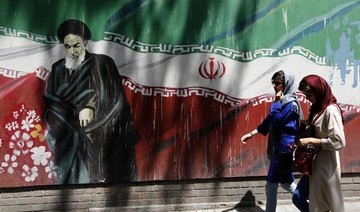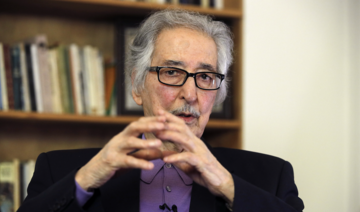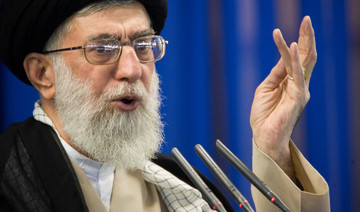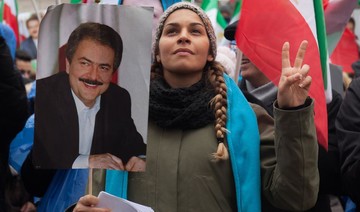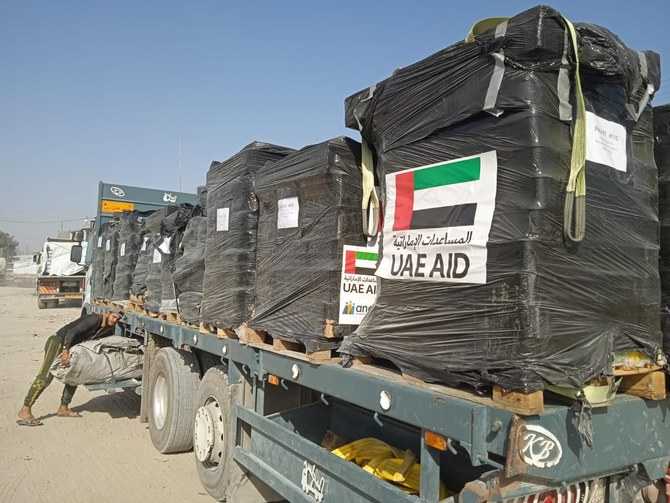DUBAI: Forty years ago, on Feb. 11, 1979, as the remnants of the last shah’s regime collapsed, the hardline Ruhollah Khomeini seized power in Iran, a revolution that altered the lives of millions of Iranians and had lasting repercussions for the Islamic world.
Ten days after returning to Tehran from his 15-year exile, the spiritual and political leader of Iran’s traditionalist Muslims was welcomed by millions on the capital’s streets, but it wasn’t long before public feeling towards Khomeini and his ruling band of clerics changed for good.
“You had a massive popular revolution, and in the early days of the takeover he was certainly not only charismatic but also loved by many,” said Alex Vatanka, senior fellow at the Middle East Institute in Washington.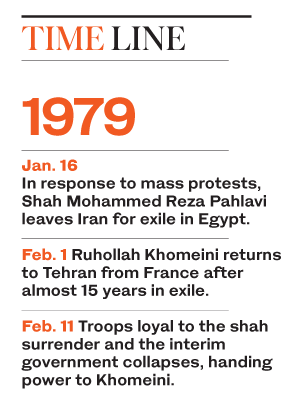
“But to judge him correctly, that love and recognition was essentially based on false promises that he made to those people. He never really told them what his agenda was, and it took a couple of years for Iranians to realize what this new idea of the Islamic republic meant in practice, and how it changed their lives socially, politically and economically.”
Khomeini quickly shifted from being a popular figure who promised to introduce democracy to Iran’s biggest tyrant. “At no point in history since the arrival of Islam has the religion been as damaged as by what Khomeini and his people have done for
40 years,” Vatanka said. “They set in motion a political process where they politicized Islam and, when they did that, all the policies they implemented that failed were, in turn, also blamed by the people on the religion.”
Much of what is wrong with today’s state of affairs in Iran is because of Khomeini, Vatanka said. “He brought politics into the religious realm and, by doing so, he killed the sacredness of religion. He left it vulnerable to attacks from all corners, and this will be the biggest legacy of the Islamic republic, putting Islam in a whole new light and putting younger generations off.”
Dr. Majid Rafizadeh, an Iranian-American political scientist and president of the International American Council, agreed that Khomeini’s rise to power had a detrimental effect on the religion.
“Khomeini significantly changed the traditional Shiite theology, which called for a separation of religion and state,” Rafizadeh explained. “He also influenced the geopolitical, sociopolitical and socioreligious landscapes of the Middle East. More importantly, his imposition of Shiism on Iranian people, paradoxically, reduced religiosity among the next generations.”
Before Khomeini, Rafizadeh said, the clergy were generally respected in Iran as spiritual and holy men. “Khomeini damaged the clergy’s popularity and reputation in society,” he said. “Many Iranian people have a negative view of the Shiite clergy and blame them for the crisis.”
The clerics have enjoyed a long reign. Khomeini held the position of supreme leader until his death in 1989, only to be replaced by the current Supreme Leader Ali Khamenei. “Ultimately, the Islamic republic has been the longest polity in power since the demise of the Qajar dynasty in 1925,” said Dr. Arshin Adib-Moghaddam, professor in global thought and comparative philosophies at the department of politics and international studies at the School of Oriental and African Studies in London.
“Ayatollah Khomeini is not only one of the most important figures of contemporary Iranian history, but also the revolution in Iran has been rightly considered as one of the most pivotal events of the 20th century,” he said. The revolution unhinged one of the most powerful states in the region, as the shah was backed by the US throughout his reign.
Adib-Moghaddam said that Khomeini and his followers managed to monopolize the revolutionary process for their own ends precisely because they refused to compromise.
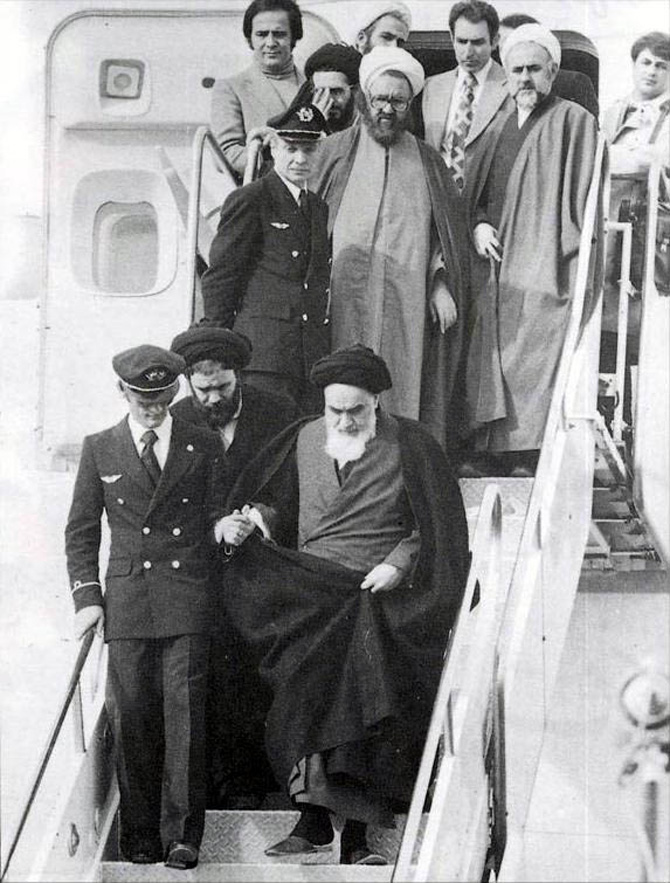
Ayatollah Khomeini returns to Iran after 14 years exile on February 1, 1979. (Wikimedia commons)
“We can safely say that the revolution of 1979 will be the last in human history, certainly in terms of the total change that it brought about in the institutional and ideological set-up of the state. Whatever one is inclined to think about the man, Ayatollah Khomeini managed to implement his political agenda against all odds.”
However, Vatanka called Khomeini’s brand of politics a failed model, aimed only at preserving maximum power in the hands of one individual who was not elected by the people but claimed to be democratic.
“Iran would be better off if it didn’t pretend to have elections,” Vatanka said. “Most countries in the Middle East and North Africa don’t have elections, but they are better than those who claim to have elections when they actually don’t.
“The hypocrisy hurts, and the average Iranian sees that — the corruption, the tarnishing of the name of religion and their country, for the sake of a few ideologues running the place.”
Should free elections take place, Vatanka has no doubt the regime would be voted out.
And while the current regime might tinker with the system to reinterpret Khomeini’s legacy, Adib-Moghaddam said it will need full-scale change.
“The democratic aspirations of Iranians have not been met, and the political system in Iran will need to reform more comprehensively at some stage in order to fulfil the original utopia that turned this revolution into a mass movement — the quest for freedom and independence, or as the revolutionaries said: ‘Esteghlal, azadi, Jomhori Eslami (independence, freedom, Islamic republic)’.”



